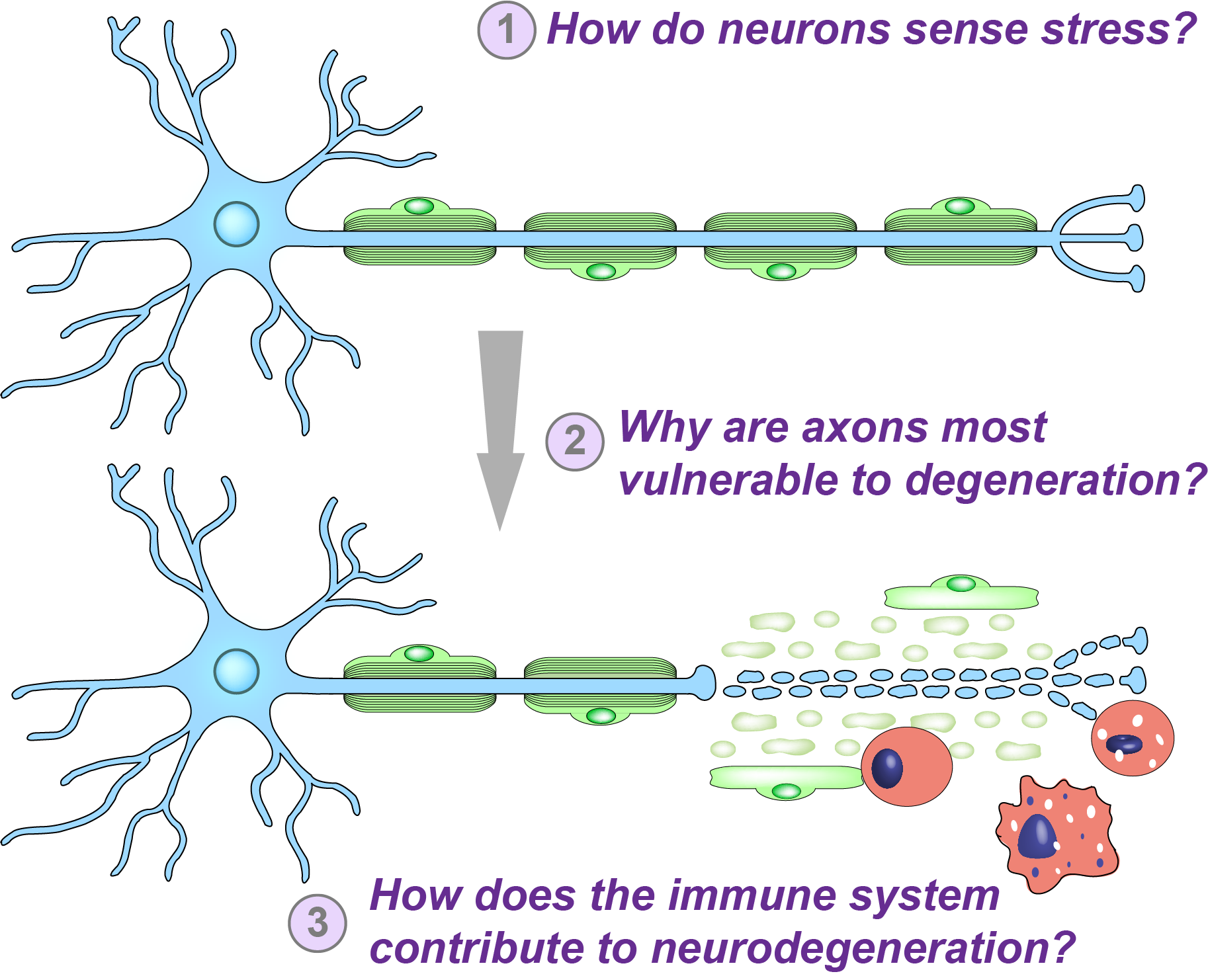You are here
Control of Axon Degeneration by the Neuronal Cell Body
Speakers
Abstract
How do some neurons survive a lifetime while others succumb to neurodegeneration? We take a ‘bottom-up’ approach to this question by first understanding the molecules and pathways that control neuronal survival, and then working upstream to ask how cellular stresses including misfolded proteins, physical injury, and loss of neurotrophic support disrupt these pathways to promote degeneration. A particular focus has been on survival of the axon, the long cable-like structures that connect neurons and degenerate earliest in many neurodegenerative diseases. We found that axon degeneration is controlled by bi-directional signaling to and from the cell body, leading us to now ask how the cell body controls the localized death of the axon. We further seek to identify proteins that sense the kind of cellular stresses that are not, in themselves, damaging and determine how these proteins signal within a neuron to promote degeneration. Finally, we are interested how neuronal survival is affected by nearby inflammation, in particular in identifying endogenous protective mechanisms that allow the neuron to withstand chronic low-level inflammation without degenerating. Our ultimate goal is understanding how a neuron reacts to its environment and how environmental stimuli affect the balance between survival and death. In support of these questions we employ a range of molecular, genetic, biochemical, and imaging techniques.


